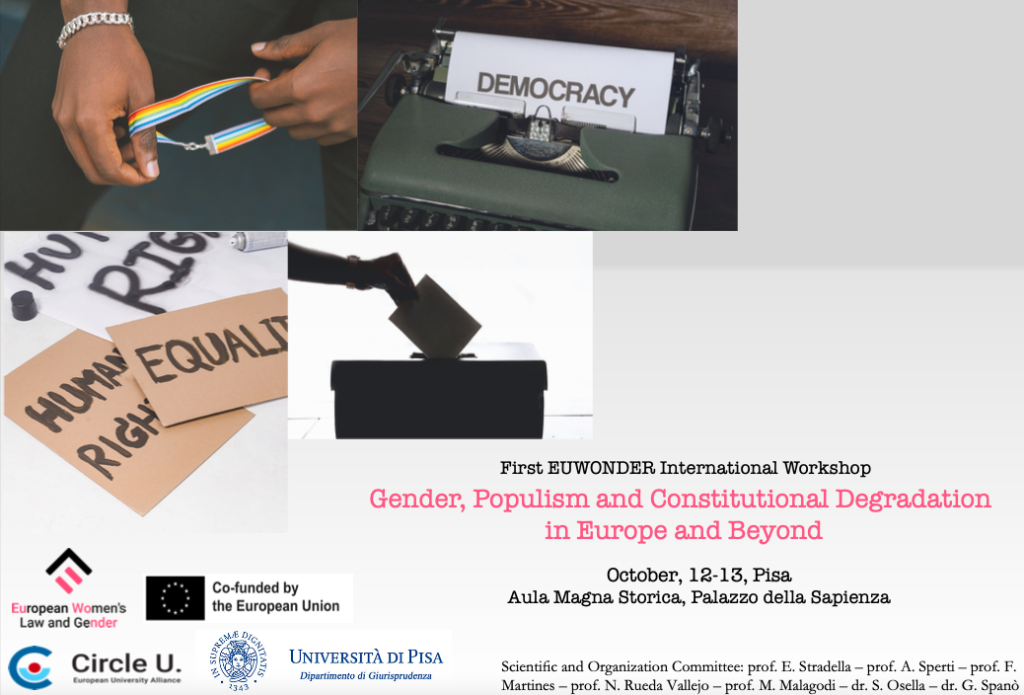
by Francesca Rescigno*
The absurd belief that the moment of childbirth must be characterised by pain has ancient origins; Genesis itself teaches that Eve, after eating the apple of knowledge in the Garden of Eden, is punished by God with the anathema: “I will multiply your pains and your pregnancies, with pain you will bear children” (Genesis 3:16-19), so women would be condemned to suffer the pain of childbirth and above all not entitled to complain.
Even today, despite incredible advances in medicine, the moment of childbirth appears to be characterised by a mysterious discretion and any suffering of the woman is in most cases ignored, since the pain is repaid by the joy of motherhood.
This idea that becoming a mother is an honour that perhaps women do not deserve, and that, since they enjoy this privilege, they should not ask for anything more, often turns into real forms of violence and an underestimation of the very special condition in which a woman about to give birth, or who has just given birth, finds herself; this is the so-called ‘obstetrical violence’, one of the many ways in which a woman’s self-determination with respect to her own body is mortified.
The issue of obstetrical violence has come back in the limelight after the dramatic case of the death of a newborn baby at the Pertini hospital in Rome. The baby was in his mother’s bed to be nursed and the woman, exhausted by the fatigue of childbirth, fell asleep and involuntarily suffocated him. Many mothers recognised themselves in that tragedy and expressed their solidarity on social media, but also their anger because any of them could have been in the place of the unfortunate mother and many had experienced the obstetrical violence personally.
The Observatory on Obstetrical Violence in 2017 commissioned to the Doxa statistical Institute a survey on a sample of 5 million women, highlighting that 21% of the women surveyed had experienced obstetrical violence, i.e. ‘appropriation of the woman’s reproductive processes by medical personnel’. Poor obstetric care during or in the days after childbirth puts 14,000 women and their babies at risk every year. The World Health Organisation, in 2014, published a Declaration entitled “The Prevention and Elimination of Disrespect and Abuse during Labour and Childbirth in Health Care Facilities”, highlighting the existence of an unfortunately widespread, though almost completely unknown, phenomenon.
Obstetrical violence is a true form of violence that affects women, an abuse of the position of power that occurs in obstetrical-gynaecological care by health workers who may impose treatments, practices or implement behaviours without providing the woman with adequate information, but also against her will̀, as well as basically abandoning the mother and child to their fate without considering the need for rest and support that are indispensable for new mothers. Abusive treatment related to childbirth can take many forms ranging from direct physical abuse, to humiliation, to verbal abuse, but also coercive medical procedures that are often unnecessary or carried out without properly informed consent. In short, a behaviour that would be completely unacceptable in any other medical situation becomes inexplicably licit when childbirth is concerned.
Obstetrical violence constitutes an act of oppression aimed at expropriating the woman from managing and making decisions about her own body in a moment of extreme delicacy and vulnerability, as if the woman were little more than a container. Some countries, especially in Latin America, have tried to address this issue by passing specific legislation, while Europe still shows an interlocutory attitude.
It is very important to talk about this insidious form of violence, especially considering that while women are asked to have children, they are left alone to manage such a delicate moment. Bearing in mind the existence of obstetrical violence is essential to re-orient, where necessary, medical protocols, on the one hand improving the experience of childbirth for mothers (and for the babies themselves), and, on the other hand, positively contributing to the work of hospital staffs with a view to promoting a culture of quality and equality, always considering the woman’s capacity and self-determination.
Midwifery violence is not someone else’s problem, but a disgrace for every country and as such must be investigated and stigmatised.
*Associate Professor of Institutions of Public Law and Equal Opportunities Law, Department of Political and Social Sciences, University of Bologna




